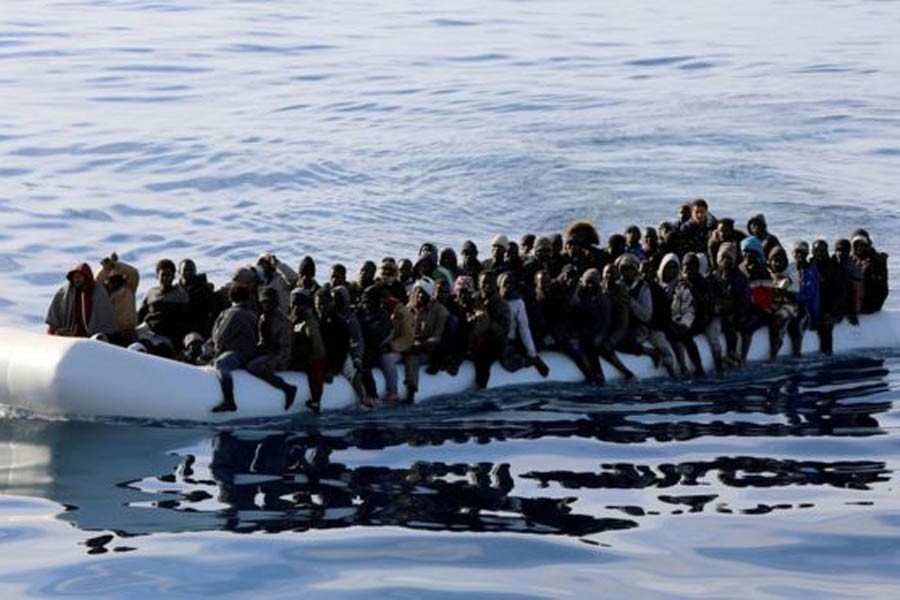The death of thirty-seven Bangladeshis in a Europe-bound boat-wreck off the coast of Tunisia in the Mediterranean Sea has brought to the fore many questions, not least being why these people had left their country in the first place. A boat-load of people sank in the sea as soon as it started for the dreamland of Europe from southern Tunisia; and although Tunisian fishermen saved 16, including 14 Bangladeshis, far more people perished in the depths of water, where ship-wrecks and drowning of would-be migrants have been a regular phenomenon over the last few decades. From a sampling of such events over the years, it can be safely assumed that every other incident in the Mediterranean Sea has presumably included Bangladeshis, be it Europe-bound from Turkey, or from Libya, Tunisia, Algeria or Morocco. We come to know about it only when some survivors are found.
In the latest case, the story of one young man starting his journey from his ancestral home in Sylhet six months ago has been gruesomely detailed in newspapers. After selling all he had in the village, he first went to, or more appropriately was taken to, Turkey through a smuggler. From there, he arrived in Libya, where eighty human souls were compressed in one room, getting one sparing meal a day, with only one toilet available to all of them. Days passed agonisingly as they waited for their dream journey. Then they went on a boat to the southern Tunisia and finally another ramshackle boat was arranged from where about fifty Bangladeshis and a few others were put into what turned out to be the journey for eternal salvation, but for the arrival of Tunisian fishermen, who saved some. Whether the very recently busted Bangladeshi-sponsored traffickers in the Spanish capital of Madrid had anything to do with this journey is beside the point, the main issue is the existence of organised transnational sponsors all over the place, here in this country or abroad, who work in the criminal informal sector and entice young men everywhere in the Third World with dreams of better life in Europe.
This brings us to the basic question of such attempted migration, be it from Africa or South Asia, i.e., why they leave their homes. The root cause must be searched at home, in the absence of jobs and `better life'. As the economy in Bangladesh grows substantially, there should be enough jobs for these people. However, they fall prey to criminal gangs in the informal sector who present to them a life of abundance abroad. Here state institutions should step in and deny those unlawful rings any space. While remittance from abroad is essential for the economy, the message for all aspiring young people should be one of discipline and sticking to the formal sectors of employment, either at home or abroad. The government could digitise all citizens to keep a track of especially unemployed young people. A huge database with everyone's name and qualifications could be created for the purpose. Young people must also know that these smugglers, who show them dreams of a better life abroad, do it for their own pecuniary gain, not for any philanthropy. They are not good people, but dehumanised exploiters, who take advantage of people's ignorance, gullibility and helplessness. The government has a lot to do here.


